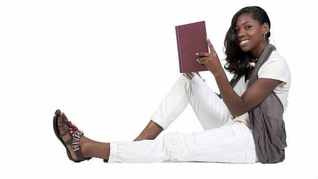
Charlotte Marshall Templeman
To Read or not To Read
Reading as we all know is imperative on many levels. It broadens your horizons, allows you to use your imagination, increases your vocabulary, introduces you to worlds unknown and most importantly reading educates you. When growing up as a child we were introduced to many types of books by teachers and our parents. In school we read such classics as Moby Dick, A Tale of Two Cities, Romeo and Juliet and Beowulf. Even before reading those books my love of reading was born out of my parents reading to me as a child. Being a creative writing major in high school and an English major in college, I was right at home reading and learning about all types of literature and genres. I enjoyed reading along with my classmates, but for some, after the assignment was over so was the reading.
Today we have many initiatives to get children and teens interested in reading because it has been shown that many of our children are not reading on their respective grade levels. In many schools there are programs like the 100 book challenge where children read a number of different books and as they progress toward reaching the 100 mark they are given gifts. The program works extremely well and there are more children reading. However, as our children grow into teenagers we see a lot of them with no interest in reading certain books, especially ones that are assigned by teachers in schools. More often we see them reading other books, mainly urban literature. There has been a debate about if the urban lit books are suitable for them to read because of its content. So, to read or not to read is the question.
Books by African Americans telling it like it is have been around for many years. During the Harlem Renaissance authors such as Langston Hughes, Countee Cullen, Zora Neale Hurston and Arna Bontemps wrote about the political and social changes that affected African Americans at the time. They also wrote about the struggles that we endured as well. Besides writers such as those mentioned we also had writers who were more blatant and hardcore in their delivery of storytelling. Their stories showed the realism of the ghetto and its bad elements. Donald Goines was such a writer of books that portrayed the life of the ghetto and where he came from. Books such as Black Gangster which told the story of a teenager who becomes the king of Detroit’s organized crime and Dopefiend, the story of two affluent middle class African Americans who go from being respected to becoming full time addicts gives the reader a raw look into the realities of the ghetto. Goines who was influenced by another urban lit writer Iceberg Slim, author of Trick Baby and Pimp made an everlasting impact on not just African American literature but American literature. Although their stories depicted the darkness and harshness of the ghetto, they were still written with proper English dialect when needed. This showed their ability to write well written books that could be read by others besides African Americans.
There are many urban lit authors today who are remaining true in their writings such as Goines and Iceberg Slim. Their stories are honest, real and supposedly reflect the inner city life. A substantial amount of African American teenagers can relate to their books because of the environment which they are growing up. Since the books are more relatable to them it draws their attention more to read. So is this a good thing or bad thing? With literacy being a major issue in our country I personally feel that if we can get teenagers reading then it is half the battle.
Although some may think that urban lit books glorify violence, crime, and sex that may be true. However, we cannot assume that all urban lit books are that way. Most of them are well written with a message that shows the consequences of living a certain way. Yes, there are some urban lit books that only portray negative images, are badly written and have no message which the reader can take away from the story, but that can be true of other genres as well. If teenagers develop a love of reading from reading urban lit books, then as teachers, parents and mentors we can introduce them to other types of literature because the gateway has been opened. Having a dialogue about the books and why they find them interesting also gets them in tuned with public speaking and expressing their creative thoughts. So to answer the question to read or not to read, my answer is to read, read, read.
 RSS Feed
RSS Feed
